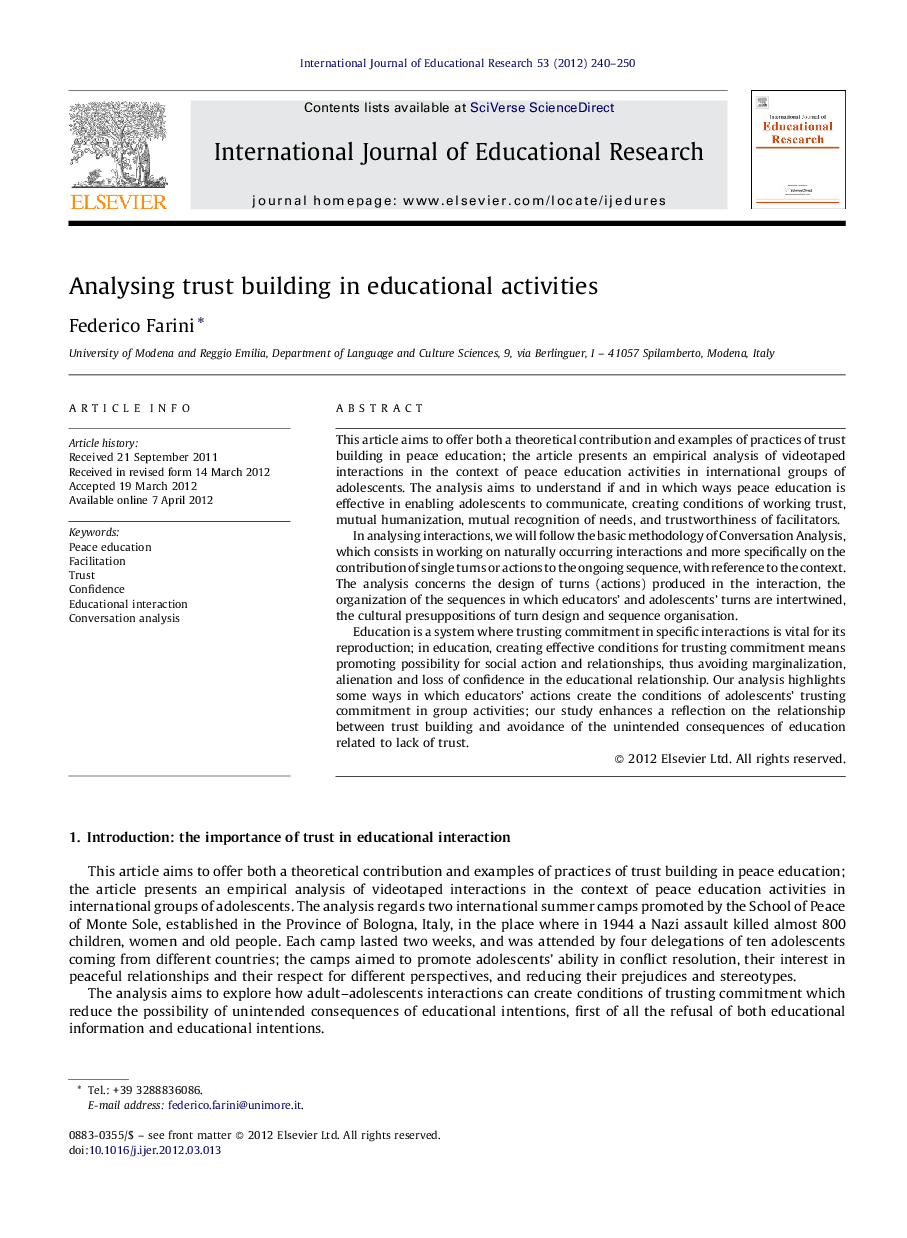| Article ID | Journal | Published Year | Pages | File Type |
|---|---|---|---|---|
| 357030 | International Journal of Educational Research | 2012 | 11 Pages |
This article aims to offer both a theoretical contribution and examples of practices of trust building in peace education; the article presents an empirical analysis of videotaped interactions in the context of peace education activities in international groups of adolescents. The analysis aims to understand if and in which ways peace education is effective in enabling adolescents to communicate, creating conditions of working trust, mutual humanization, mutual recognition of needs, and trustworthiness of facilitators.In analysing interactions, we will follow the basic methodology of Conversation Analysis, which consists in working on naturally occurring interactions and more specifically on the contribution of single turns or actions to the ongoing sequence, with reference to the context. The analysis concerns the design of turns (actions) produced in the interaction, the organization of the sequences in which educators’ and adolescents’ turns are intertwined, the cultural presuppositions of turn design and sequence organisation.Education is a system where trusting commitment in specific interactions is vital for its reproduction; in education, creating effective conditions for trusting commitment means promoting possibility for social action and relationships, thus avoiding marginalization, alienation and loss of confidence in the educational relationship. Our analysis highlights some ways in which educators’ actions create the conditions of adolescents’ trusting commitment in group activities; our study enhances a reflection on the relationship between trust building and avoidance of the unintended consequences of education related to lack of trust.
► We analyse educational interactions taken from peace education in intercultural groups. ► The analysis shows some ways in which educators promote adolescents’ trusting commitment. ► In promoting trust, educators act as mediators amongst adolescents in triadic exchanges. ► As mediators, educators facilitate adolescents’ action, promoting their mutual trust. ► Facilitation prevents loss of confidence in educational activities related to lack of trust.
